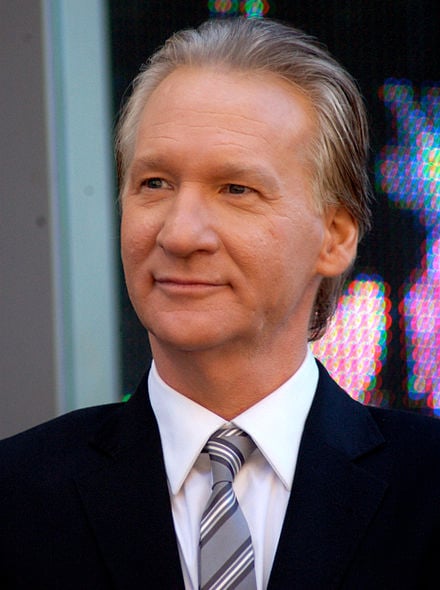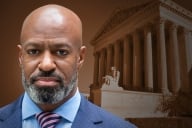You have /5 articles left.
Sign up for a free account or log in.
 Bill Maher, the comedian (right), gave the commencement address at the University of California at Berkeley on Saturday -- an address that many Muslim and other students tried to get called off.
Bill Maher, the comedian (right), gave the commencement address at the University of California at Berkeley on Saturday -- an address that many Muslim and other students tried to get called off.
According to a Berkeley spokesman, a handful of students rose and turned their back on Maher when he spoke. They held a sign that said "Don't Maher the commencement." They were silent and did not disrupt his speech. According to press accounts, Maher briefly touched on the opposition to his speaking, saying, "If you call yourself a liberal, you have to fight oppression from wherever it comes from.... That's what makes you a liberal." He also urged Berkeley students to avoid group think. "That's the last thing I'll suggest to you -- be a free thinker," he said.
The choice of Maher as commencement speaker sparked anger over his statements criticizing Islam, although others noted that Maher is equal opportunity when it comes to those he criticizes, and that he has made both serious comments and jokes that have caused offense of many groups. More than 4,000 people signed an online petition calling on Berkeley to rescind the invitation. Nicholas B. Dirks, chancellor at Berkeley, said that the university could not withdraw invitations because of the political comments made by speakers.
In advance of commencement, Dirks met with some of the students who wanted the university to call off Maher's appearance, and sent these students a letter. In the letter, Dirks wrote: "Free speech is a basic right and is not only constitutionally protected but also a value that is encoded in the DNA of Berkeley. And yet the current controversy makes clear the extent to which free speech can cause pain, offense, and even outrage. Our history – as a campus, as a community, and indeed as a nation – makes clear this is an inevitable effect of free speech, and it is a fact that courts have invariably stricken efforts to legislate limits on free speech that may be judged as offensive or even intentionally hateful. And yet as a campus we have, particularly lately, come to be increasingly cognizant of and concerned about the ways in which expression can create and/or intensify stereotypes – essential categories of assumption, prejudice, and attribution – about different identities and social categories."
He added: "While I recognize and agree with some of the concerns that have been expressed, any effort to constrain or limit the conditions around invitations to speak – whether at commencements or other public event – risks compromising the fundamental values that free speech protects. Who can speak freely? Which opinions might be justly censored? What criteria can be imposed neutrally and fairly? Who judges? How can feelings of offense, or hurt, constitute legitimate grounds for limits not just on speech but on invitations to speak on campus? Surely a university – especially this university — has an obligation to promote speech, opinion, and argument at its most robust."








